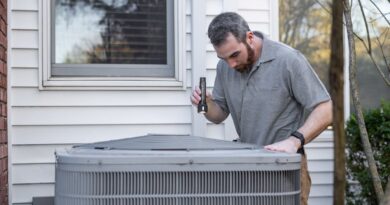Your Guide to Common HVAC Issues
Did you know that over 50% of your homes energy use goes towards heating and cooling? that’s a significant chunk of your utility bill! Understanding common HVAC issues can help you save money and keep your home comfortable. Lets dive into the most frequent problems and how to tackle them.
What Are HVAC Systems?

HVAC stands for Heating, Ventilation, and Air Conditioning. These systems control your homes temperature and air quality. They keep you warm in winter and cool in summer. When they work well, you hardly notice them. But when something goes wrong, you definitely will!
What Are Some Common HVAC Issues?

Every HVAC system may face problems over it’s lifetime. Here are a few common issues you might encounter:
- Unusual noises
- Inconsistent temperatures
- Bad smells
- High energy bills
- Frequent cycling
Lets explore these issues in detail.
Why Is My HVAC Making Strange Noises?

Hearing strange sounds from your HVAC system? This often signals a problem. For instance, a loud bang might mean a component has come loose. A high-pitched whistle could indicate a leak in your ducts.
Common sounds and what they might mean:
- Banging: Loose parts or a damaged motor.
- Buzzing: Electrical issues.
- Whistling: Air leaks in the ducts.
If you hear something unusual, it’s best to call a professional to check it out. Ignoring these sounds can lead to bigger problems down the road.
Why Are Some Rooms Warmer or Cooler?

Inconsistent temperatures can be frustrating. You might feel hot in one room and cold in another. This issue often stems from poor airflow.
Here are a few reasons why temperatures vary:
- Blocked vents
- Dirty filters
- Improperly sized HVAC system
To fix this, start by checking your vents. Make sure they’re not blocked by furniture or dust. Changing your air filters regularly can also help maintain even temperatures.
What Are Those Bad Smells?
Smells coming from your HVAC system can be alarming. They may indicate something is wrong. Heres a quick guide to common odors:
- Musty smell: Mold or mildew in the ducts.
- Burning smell: Dust burning off heating elements.
- Chemical odor: Refrigerant leak, which can be dangerous.
If you detect a strong or unusual smell, it’s time to take action. Call a professional to investigate. don’t ignore these red flags!
Why Is My Energy Bill So High?
Noticing higher energy bills? It could be your HVAC system. An inefficient system uses more energy to maintain your desired temperature.
Factors that impact energy efficiency include:
- Old or outdated systems
- Lack of maintenance
- Poor insulation
To reduce your bill, consider regular maintenance checks. Also, upgrading to a more efficient system can save you money in the long run.
What Does Frequent Cycling Mean?
If your HVAC system turns on and off frequently, it’s in a state called short cycling. This can waste energy and wear out the system faster. Reasons for short cycling include:
- Thermostat issues
- Dirty filters
- Undersized unit
Check your filters first. If they’re dirty, change them. If the problem persists, consult an HVAC technician.
How Can I Prevent HVAC Issues?
Prevention is key to keeping your HVAC system running smoothly. Here are some tips:
- Schedule regular maintenance.
- Change filters every 1-3 months.
- Seal ductwork to prevent leaks.
- Keep outdoor units clear of debris.
By taking these steps, you can avoid many common issues and extend the life of your HVAC system.
What Should I Do When Theres a Problem?
If you encounter an HVAC issue, don’t panic. Heres a quick checklist to follow:
- Identify the problem (e.g., strange noise, bad smell).
- Check simple fixes (like changing filters).
- Call a professional if needed.
Most importantly, keep a record of any issues. This helps technicians diagnose problems faster.
When Is It Time to Replace My HVAC System?
Even the best systems have a lifespan. If your HVAC is more than 15 years old, consider these signs for replacement:
- Frequent repairs
- Inconsistent temperatures
- High energy bills
Upgrading can save money over time and improve your homes comfort.
How Do I Choose an HVAC Professional?
Finding a reliable technician is crucial. Heres what to look for:
- Licenses and certifications
- Positive reviews and references
- Experience with your specific system
don’t hesitate to ask questions. A good technician will be happy to explain their process and your options.
Conclusion: Key Takeaways
Understanding common HVAC issues can save you time, money, and stress. Remember to:
- Regularly maintain your system.
- Recognize the signs of trouble early.
- Seek professional help when needed.
By staying proactive, you can ensure your HVAC system keeps your home comfortable year-round. For more tips, check out our related post on energy-saving tips.
don’t let HVAC issues disrupt your comfort. Stay informed and take charge!



